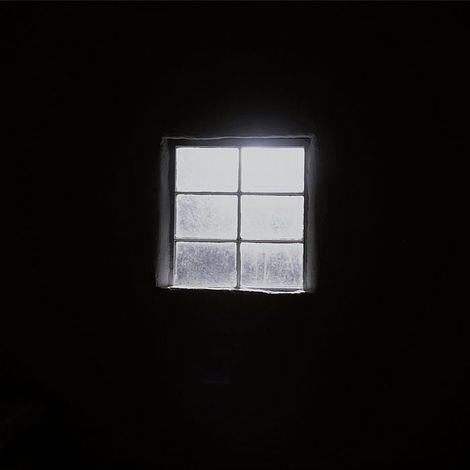The whole mysterious quasi-anonymous dark synth pop schtick is more than a bit overdone, wouldn’t you say? Take a recent example, iamwhoiamwhoami, as a case study. The project treads the all too familiar path of long hushed anonymity, releasing cryptic youtube video after cryptic youtube video until — aha! — the big reveal that she was no more than Swedish songstress Jonna Lee rebranded to fit a Knife-esque archetype of sinister production and soaring vocals. It all just seems a bit disingenuous — a viral marketing scheme that, while effective, still reeks heavily of icky meddling rather than the singular power of a unique songwriting voice. Lee’s debut was good, very good no doubt, but one couldn’t help but wonder if something was lost in the way that the project was introduced to the world.
It would be tempting to lump Castratii, a similarly minded duo out of Sydney, Australia, under the same umbrella of overdone image and attempts at gimmicky anonymity. In a conversation I had with the band, they intentionally strayed from revealing themselves, likening their own anonymity to the anonymity of art exhibitions in the visual realm. In the same way, the duo seeks to strip their own personalities and preconceived notions from the art they present. It’s an approach that no doubt functions well within their debut album Eora.
Of course, all this perceived posing and pretense would be for nothing if the art they’ve constructed didn’t live up to the momentous standards suggested by such a high concept. Though relatively slight, at only seven proper tracks, Eora functions less as an extension of their creators than of their view of the environment that birthed it. In Castratii’s cracked worldview, Eora (the aboriginal name for their hometown of Sydney) is less the land of smiles, kangaroos, sandy beaches, and the untainted roofing of their famed opera house. It is instead a land of swelling darkness. These are no homespun bedroom pop tunes, but monolithic works packing a fair portion of the force of touchstones like Fever Ray and Cocteau Twins. “Descent” opens with a haunting synth sound straight out of “If I Had A Heart,” but the instrumental delves into far moodier territory, shunning any semblance of danceability or pop inclinations that Fever Ray imbued such a track with in favor of a low rumble. They’re largely holding onto their touchstones but mixing it up enough to that their songwriting voice still feels singular.
Eora is land, sea, and air. The monumental heights of “Limits” encapsulate the soar of early Slowdive work, but grounded by the earth-rattling kick drums that permeate so much of the record. Castratii deals largely in a style that is permeated by sterile coldness on the large scale, but there’s something about their production style (as well as Moss’ unique vocal stylings) that lend this record the organic nature of its Australian home. We’re used to cleanliness and stark imagery in this synth pop realm, of flashing strobes and dark silhouettes creeping around the room. Though Castratii have apparently embraced this imagery in press photos, their’s is a style that instead lends itself to the daunting wide open spaces that lie just beyond Eora. While there is darkness throughout, the atmospheres conjured rely on more organic synth compositions and the hints of darkness beyond rather than within.
It’s a record that would impress regardless of the personal story attached to it. And, lo and behold, that’s what the duo has intended: to put this view of Sydney into light, into the great gallery of the indie music world with no real names attached to it. If you dig hard enough, you can find their names on the internet, but it’s perhaps better to go into Eora with nothing but color-drained visions of Sydney in your mind. With a debut as intriguing and impressive as this, we’ll leave them to their secrecy. For now, you need only know one name: Castratii.

